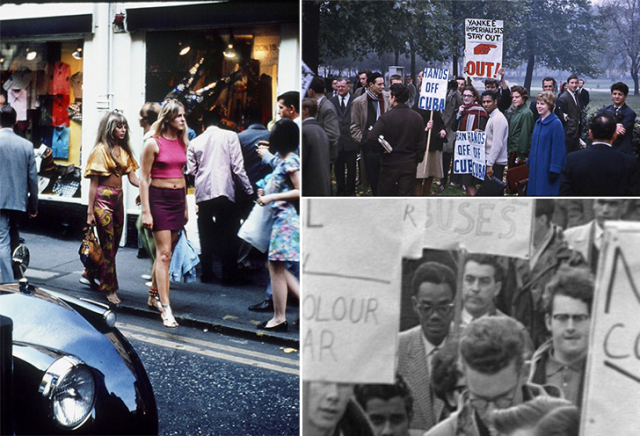Teacher Fellowship Programme: Broadcasting and Social Change in Sixties Britain
Teacher Fellowship Programme 2022

Broadcasting and social change in 1960s Britain
This Teacher Fellowship Programme focused on developing the teaching of the history of equality and diversity in postwar Britain using video and audio sources. The programme was funded by the Arts and Humanities Research Council BBC History 100 Fellowship. The programme has sought to refresh the teaching of modern British history in schools by diversifying its content, expanding its source base and applying insights from the latest academic research. It focused on the quest for equality and recognition in postwar Britain by a variety of social groups including women, workers, Black, Asian and other ethnic minority communities, LGBTQ+ communities, Irish Catholics, people with disabilities and the young.
Participants worked with historian Marcus Collins and programme leaders Hannah Cusworth and Will Bailey-Watson to explore new ways of teaching with audiovisual materials and to consider current debates about when, why and to what extent Britain became a 'permissive society' and experienced a 'cultural revolution' in the 1960s.
Select teaching resources produced by the Teacher Fellows are now available below, with more resources to be published when BBC Archives footage is made available.
For enquiries please contact Maheema Chanrai at maheema.chanrai@history.org.uk.
Outcome resources
- How can we find out about the experiences of Black Britons in the 1960s?
- What can Rainbow City tell us about race relations in sixties Britain?
- What can audio-visual materials reveal about the 1960s?
- Understanding the local context of the civil rights movement in the United Kingdom through exploration of similarity and difference
- What do broadcasting and the media reveal about the lived experience of the ‘swinging sixties’?

